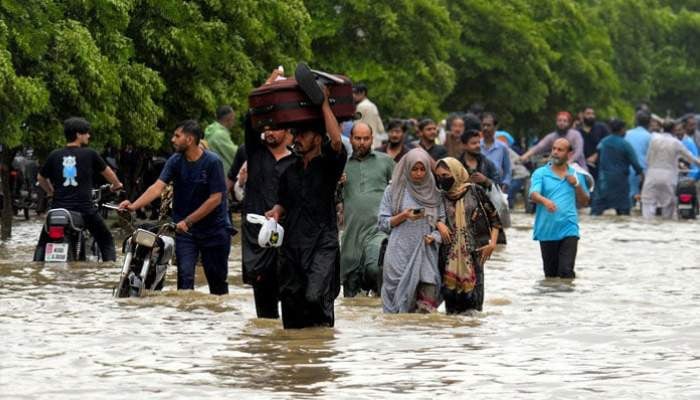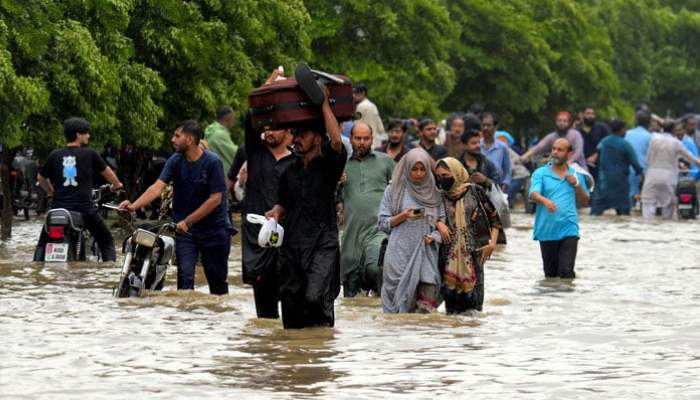Parts of Karachi left in darkness for 48 hours as blackout drags on
KARACHI: Pakistan’s largest city, along with parts of Sindh, remained paralysed by prolonged power cuts and waterlogging on Thursday, two days after heavy monsoon rains, as officials cautioned that the next phase of the monsoon could be even more destructive.
Sindh Governor Kamran Khan Tessori, taking notice of the worsening outages, said he would meet the managing director of K-Electric, the only utility tasked with supplying electricity to Karachi.
Widespread blackouts across Karachi and Hyderabad
Residents in areas including North Nazimabad, Gulistan-e-Jauhar, Defence View, Orangi Town, Lyari, Baldia Town, Liaquatabad, Surjani and the Korangi Industrial Area reported being without electricity for between 24 and 48 hours.
In some parts of the city, blackouts stretched beyond a day and a half, cutting off water supplies to households.
In Gulistan-e-Jauhar’s Block 8, residents staged a protest after going 32 hours without power, while in Block 2 electricity had been out since Tuesday. North Nazimabad residents reported blackouts lasting up to 45 hours.
Similar situation was reported from Hyderabad, where citizens said 90% of Latifabad and Qasimabad remained in darkness, with restoration delayed for over seven hours.
K-Electric defends its response
K-Electric Chief Executive Moonis Alvi said more than 500 feeders had tripped during the downpour, but insisted that 94% of supply had been restored by Wednesday evening.
The company said power was flowing through 1,950 of Karachi’s 2,100 feeders, with work continuing on the remaining 150.
It said that accumulated water across many parts of the city had hampered the movement of vehicles, slowing the efforts of repair teams.
Governor pledges relief for residents
Governor Tessori, accompanied by MQM leader Dr Farooq Sattar, visited flood-hit areas late Wednesday and later told reporters that electricity shortages had become Karachi’s most pressing challenge.
He said that families in Surjani had been forced to spend the night on rooftops as rainwater inundated their homes, adding that food aid had already begun in the area.
He also called for urgent drainage of waterlogged localities.
Tessori said that Governor House’s complaint cell had received over 11,000 calls in a single day, most of them linked to outages, adding that similar centres would soon be set up in Hyderabad and Mirpurkhas.
“This is not the moment to pin everything on climate change,” he said. “Once this crisis passes, we must address the root causes of these failures.”
He added that the K-Electric managing director had been summoned for a briefing today.
Two brothers electrocuted
Meanwhile, two brothers died after being electrocuted in Natha Khan Goth during Tuesday’s storm.
Police identified the victims as 21-year-old Murad and his 16-year-old brother Siraj. Their father has filed a case at Shah Faisal Colony police station, where officers have included charges of manslaughter against K-Electric officials.
Minister warns of harsher rains ahead
Federal Climate Change Minister Dr Musadik Malik warned that the current spell of rain was likely to persist until September 10, adding that the next monsoon system could be even more severe.
Speaking on Geo News’ programme Capital Talk, he said preparations must begin now for the incoming wet spell during the next monsoon.
Citing recent floods in Khyber Pakhtunkhwa, he said that cloudbursts and flash floods could sweep away massive boulders “like straws”, wreaking havoc on communities below.
He added that hotels and resorts built in flood channels often collapse into rubble, magnifying the destruction.
Sindh Minister Nasir Hussain Shah, appearing on the same late-night TV programme, admitted that Karachi’s drainage system had a capacity of just 40mm, making it impossible to withstand 200mm of rainfall.
Appearing as a guest speaker in the show, Environmental expert Dr Zainab Naeem also warned that unchecked stone-crushing in mountain areas was heightening the risk of flash floods, with little regulation in place.


